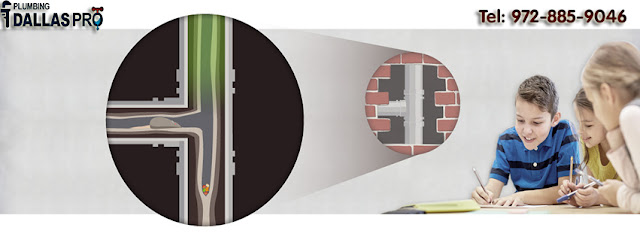1- Check for adjustments to your water meter to verify that
you have a leak. Before you do anything else, shut down the main water
supply to your home and take a close look at your water meter. If either
the normal or low-flow indicator hand is moving, this means that you
have a continuous leak somewhere in the line. On the newer digital
meters, the typeff will see any number other than "0" on the flow rate
screen.
- All homes are equipped with water meters designed
to make billing easier and help homeowners track how much water they use
on a regular basis. In most cases, your water meter will be in a
protective "box" near the sidewalk or a sidewalk in front of your home.
-
Minor leaks may not create enough lost water to show up right away on
your water meter. To be absolutely sure, wait 1-2 hours after your
initial reading and take a second reading. If the second reading differs
from the first reading, you have a leak.
2- Eyeball stress
relief and drain valve on your hot water heater. Once you've decided
that you have a leak on your side, it's time to find it. Start by going
to your hot water heater and looking for a pool on the surrounding
floor. If the trigger is a drip valve, it likely only needs to be
replaced. If the valves are dry, there is a chance that the leak is
inside the tank, which means that you may need a brand new water heater.
- You can find the stress relief and drain valve at the top and bottom of your water heater, respectively.
-
Listen closely to dripping, gurgling, and hissing sounds, as well. It
is likely that your leak has not yet been visible on the outside of the
water heater, but it may still be audibly audible.
3- Take a
look at every toilet in your home. Add a few drops of dark food coloring
to the toilet tank, then wait half an hour or so without flushing the
toilet. Look to see if the dye has made its way into the bowl after that
time. Assuming that the problem is most likely a worn-out flapper
valve. However, the wrong flush handle could also be the culprit. Your
next move is to determine which part is to blame and pick up a
replacement in your local hardware store.
- Most of the
toilet leaks come from the flapper valve, which is the rubber seal that
moves up and down when you flush the toilet. You will often hear the
water running continuously if the flapper valve is not properly sealed.
-
If you think the flush handle might be a problem, try tightening the
nut to the side of the tank or adjusting the length of the chain so that
it is neither too taut nor too loose. If neither of these solutions is
working, you may need to completely replace the handle.
4- Look
for leaky heads of shower and drains. Take a look inside the shower
while you're in the bathroom. Spotted pooling is usually due to a
partially-open curtain or sliding door that is off alignment, but in
some cases it may be due to a dripping shower head, a broken tile or a
loose drain connection. Re-seal or remove them as soon as possible to
prevent the need for more serious repairs later on.
- You
could test the drain of your shower by covering it with a test tube,
pouring 1–2 inches (2.5–5.1 cm) of water into the bath and waiting to
see if the water level is going down inexplicably. Failing sealants can
allow water to escape around the edges of the drain.
- In
rare cases, structural damage to the walls or floors underneath the
shower stall may be caused by leakage. If there is no solution to the
problem areas, these types of leaks may require professional
intervention.
5- Pay attention to evidence of damage to the
water around the sinks and faucets. If you're fortunate, you'll be able
to see the source of the leak with your own eyes. If not, look for water
stains, swelling, or rotting in the surrounding wood or particle board.
Tightening the socket base, replacing cracked handles or knob valves,
or scraping away and applying new waterproof caulk around the fixtures
will correct most small point leaks.
- Here's a useful
experiment if you can see water but don't know where it comes from: pour
out a large glass of water around the sink, including the countertop.
Then open the cabinet under the sink and watch it dribble out of unseen
cracks or holes.
Plumbing Dallas TX
https://plumbingdallastxpro.com/
Tel: 972-885-9046
#plumbers_near_me #Emergency_plumbing
#Plumbing_contractors
#sump_pump
#water_pipe
#drainage_pipe
#plumbing_services
#plumbing_tools
#emergency_plumber
#plumber
#Slab_leak_detection
#Licensed_plumber
#leak_detection
#Plumbing_Dallas_TX
#Water_Leak_Dallas_TX
#Plumbing_In_Dallas_TX
#Water_Leak_In_Dallas_TX






